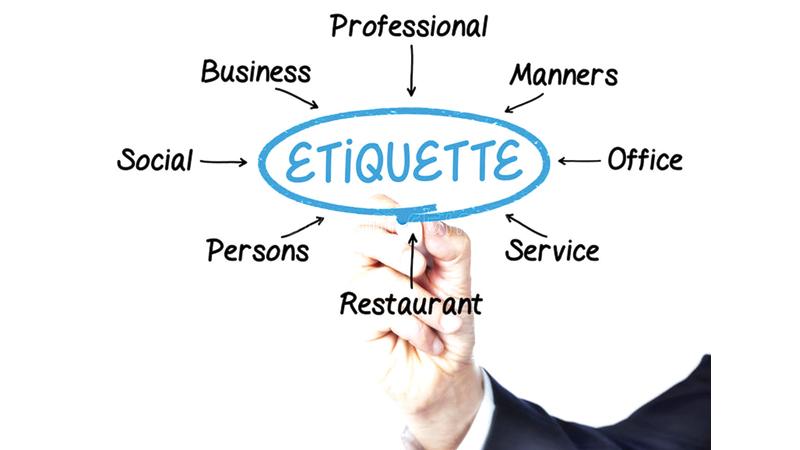
When the Titanic hit an iceberg and sank many decades ago, only about a third of the great ship’s passengers survived. Most of them were women and children. Many male passengers refused to get into lifeboats because they were not sure whether all the women and children were safely aboard. Sometime later, a surviving ship’s officer was asked whether “Women and children first” was the captain’s rule or the rule of the sea. He said it was the rule of human nature. In other words, any civilized society is bound by rules of etiquette.
It is a question whether we still follow the rule of human nature. Judging by news reports, women and children are routinely harassed at homes, workplaces, schools and in society. Some of them are verbally abused and others are physically or sexually assaulted.
 How many male passengers are ready to offer their seats to a pregnant woman on buses and trains? Most men pretend to be sleeping whenever a pregnant woman boards a bus or train. Sometimes you may wonder how a few women have managed to find themselves in corporate towers while the majority of women do not have the freedom to walk the streets in safety.
How many male passengers are ready to offer their seats to a pregnant woman on buses and trains? Most men pretend to be sleeping whenever a pregnant woman boards a bus or train. Sometimes you may wonder how a few women have managed to find themselves in corporate towers while the majority of women do not have the freedom to walk the streets in safety.
The erosion in civility probably began in the 1960s. Men and women gleefully rejected Victorian manners as an outmoded code of morality. Victorians were not confined to England, they were also found in the United States. Our own grandparents must have honoured Victorian morals because they were meant to minimize instances of violence against women and children.
Charles Darwin pronounced that humans were not one step below the angels but a few steps above primordial sludge. They sought comfort in a greatly expanded code of manners.
It proved that they could rise above their roots. The morality code covered every human activity from talking about sex and marriage. Children were taught the importance of self-restraint at home, school, temple and church. Moral laws were meant to shield women and children from unruly elements in society.
Cultural anarchy
What has happened today is somewhat deplorable. Most of us have opted to replace that code of etiquette with cultural anarchy that encourages immediate gratification and maximum self-expression. As a result, women and children are no longer safe on buses and trains. They are scared to travel alone. If the somewhat old-fashioned restraint was there, women and children would be safe in society.
People lived a tough life a century ago. They did not have television, Internet or smart phones. However, their lives were safer and smoother than today. In New York City, three out of five arrests were for nothing worse than drunkenness or disorderly conduct.
In the absence of a code of morality, laws have to be passed prohibiting smoking in public places. However, it is virtually impossible to enact laws to resurrect moral rules. In the words of one mid-19th century etiquette book “Such practices form a sort of supplement to the law, which enables society to protect itself against offences which the law cannot touch.” Unfortunately, we cannot go back to the past and recapture the lost grounds.
Yet, women and children have a right to live safely in society. For this to work efficiently, men should learn how to respect women and children. When they doso, violence against women and children will decline, making our lives a shade more pleasant.
From Thailand to Finland, from Buenos Aires to London, people worry that courtesy is fast becoming a thing of the past.
Service in shops has become surly. Once I stepped into a shop in Chennai, India to buy something to remember my trip to that beautiful country. The salesman showed me many items but I was not impressed. When I was about to leave the shop, the salesman blasted me for not buying anything from the shop. I wholeheartedly agree with Lynne Truss, author of “Talk to the Hand.” He claims that we live in an age of lazy moral relativism combined with aggressive social insolence.
A friend tells me that he found extreme courtesy in a Zurich shop where salesmen thank all the customers whether they buy anything or not.
Courtesy in shops
In a recent survey, the region that most lacked courtesy was found to be Asia. In places like Mumbai courtesy in certain shops was woefully lacking. A foreigner dropped some documents while buying some items in a shop in Mumbai. Nobody came forward to pick his documents. In fact another salesman stepped on them. “That’s nothing,” said the shop’s security guard, “in Mumbai, they will even step over a person who has fallen in the street.”
A few years ago, ethics was a subject for GCE Advanced Level examination. For some unknown reason it was axed. If you study ethics or moral science, you will respect life. Every day we are bombarded with personal choices and their consequences. If you accept a choice which is morally good, you will enjoy happiness. If by any chance, you accept a choice which is immoral, you will have to face the consequences. Our choices range from sexual proclivities, war, and crimes. If you have a good moral background, you will select the correct path.
Whether you like it or not, we cannot escape from moral issues, even if our own lives are untouched by painful decisions or tinges of guilt. We are not babies to be looked after by elders. We are morally responsible for everything we do. All our actions can be divided into three categories: Moral, immoral and amoral. Whether you think an action is moral or immoral will depend on your values. If people are dying of starvation, it is not a moral issue. However, if you do nothing to help them, it becomes a moral issue.
Rules of etiquette
There are rules of etiquette for everybody. Some of them are as follows:
* Be yourself and allow others to treat you with respect. When you respect others, they will reciprocate your feelings. This cannot be done in a day or two. Working out the rough edges can be a lifelong process. Therefore, begin your journey right now.
* When someone pays a genuine compliment, say “Thank you.” Use words such as “Please”, “Excuse me”, and “Sorry” generously. They are the hallmarks of good manners.
* When you meet a friend, greet him and pay him a genuine compliment. Be generous with sincere words of praise, warm greetings, words of sympathy and whatever is appropriate to the occasion.
* Always exercise self-control and good taste. Your voice, your behaviour and even the way you dress should reflect elegance. We naturally respect a well-dressed man or woman. Do not brag about your achievements. Others are not interested in them.
* Above all, be a good listener. Be genuinely interested in other people. Remember the names of your friends and colleagues. Never interrupt when they talk.
